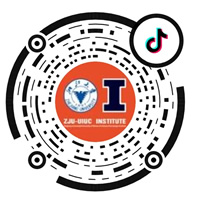This joint center is inspired by the recent success of mRNA nanoparticle vaccines for COVID- 19, which has literally “changed our lives”. However, the fundamental challenges in mRNA delivery remain, and the mechanistic details at the molecular and cellular levels are still not well understood. Similarly, cancer immunotherapy has transformed the paradigm for cancer treatment, but wide-spread clinical applications are still impeded by a number of factors such as low to moderate rates of patient response, the high cost and ineffectiveness of chimeric antigen receptor (CAR) T cell therapy against solid tumors, and the occurrence of severe or even life-threatening side effects. Here we have assembled a collaborative team of 8 faculty investigators in 4 academic departments involving UIUC, ZJU main campus, ZJUI (Haining), and ZJU- Edinburgh (Haining), with broad expertise in bioengineering, materials science, chemical and biological engineering, cancer biology, immunotherapy, and clinical oncology. The joint center will be led by Dr. Shuming Nie (Grainger Distinguished Chair Professor in Engineering at UIUC) and Dr. Youqing Shen (Dean of the School of Chemical and Biological Engineering at ZJU).

Key Faculty Participants:
Hua Wang (UIUC), Joseph Irudayaraj (UIUC), Xing Wang (UIUC), Fangwei Shao (ZJUI),
Shiqun Shao (ZJU), Jian Lu (ZJU-Edinburgh)
Specific Aim 1: Design and optimization of mRNA sequences, cellular and molecular epitopes, and tumor neoantigens for cancer immunotherapy (X Wang, J Irudayaraj, and F Shao)
Specific Aim 2: Development of two types of smart LNPs for efficient mRNA protection and delivery, based on one class of self-assemble LNPs with cooperative pH-responsive properties, and another class of quaternium LNPs with charge-reversal properties (S Nie, Y Shen, and F Shao)
Specific Aim 3: Development of multifunctional and macroporous biomaterials with embedded mRNA and immune stimulating factors (H Wang, F Shao, J Liu)
Specific Aim 4: Cellular and in-vivo animal studies including nanotoxicology, therapeutic efficacy, and single-cell studies of DC-based immunotherapy (H Wang, J Liu, J Irudayaraj)








